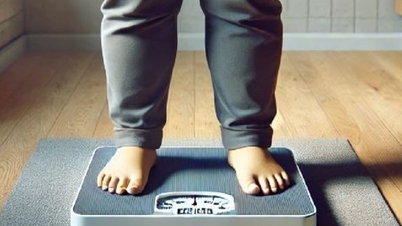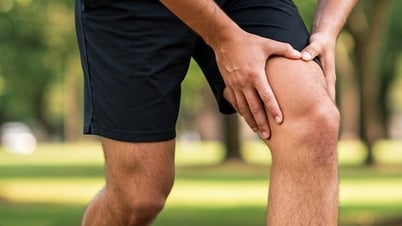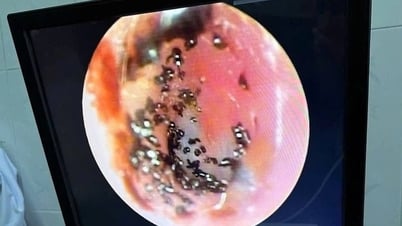
Many women struggle to find ways to lose fat, especially belly fat - Photo: Fortune
“Menopause is associated with weight gain around the midsection and increased visceral fat—the term for fat distributed around the organs—along with a loss of muscle mass,” says Jolene Brighten, a naturopathic endocrinologist in Florida and author of Is This Normal?.
This makes many women struggle to find ways to lose fat, especially belly fat.
Headache with belly fat
“Overall, aging can cause an increase in central fat distribution, but estrogen decline is closely linked to this change in the body,” Brighten says, adding that weight gain can also be due to changes in testosterone levels, decreased sleep, and muscle atrophy.
Those changes "can lead to increased levels of hormones like cortisol and insulin," says Karen Tang, MD, a gynecologist in Philadelphia.
Both can contribute to weight gain and increased appetite, while cortisol is linked to storing more fat around the belly.
“You're also at higher risk for things like insulin resistance and diabetes, factors that can contribute to some amount of fat accumulation,” she says.
Plus, Tang explains, this big shift can cause hormone-related bloating symptoms, including weight gain due to water retention. But it's often the extra visceral fat that you "can't get rid of by doing ab exercises," she notes, that's the most frustrating factor.
Especially since "midsection fat distribution is associated with increased risk of diabetes, cardiovascular disease, high blood pressure, and metabolic syndrome," says Dr. Brighten.
What to do about belly fat during menopause?
First, Dr. Tang advises, it’s important to see a doctor to check for medical causes of weight gain, from thyroid problems to diabetes. Once those causes are ruled out, it’s time to start looking at ways to change your exercise and eating habits.
“Your exercise routine may need to change,” says Dr. Brighten, especially if you find that your old workouts aren't getting as much benefit from them anymore.
She recommends focusing on increasing muscle mass. “Also, find ways to add activity to your day by going for a walk, taking up new hobbies that require you to move, or being more mindful of how much time you spend sitting,” she says.
“You might also consider taking up something like tennis or pickleball,” she adds, “which offer physical and social benefits and have strong links to longevity.”
Dr. Tang recommends exercising at least twice a week, as this has been shown to help preserve bone density and prevent osteoporosis.
She also recommends trying short, high-intensity workouts instead of just long walks, but always consider other menopause symptoms you're dealing with, like joint pain.
“Sometimes the problem is finding a sustainable option, something you enjoy and can maintain, while not making your other symptoms worse,” she says.
The positive in all this, according to Tang, is that while the changes in metabolism and belly fat can feel severe during the transition from perimenopause to early menopause, which lasts an average of 10 years, there's some evidence that things will eventually balance out.
“So this isn’t something that’s going to get worse forever,” she said. “But it’s been a very challenging couple of years for people to figure out their new normal.”
Need to change the way of eating
Even if you've been eating the same way for most of your life, your body processes food differently now. So the weight gain may seem inexplicable, says Tang. "Your muscles respond differently, and you have less lean muscle than before, so your metabolism changes." You have to factor that into how you eat and exercise.
There is some evidence that cutting back on sugar, salt, and processed foods and moving toward a Mediterranean or plant-based diet can help reduce menopausal symptoms, says Dr. Tang. “And obviously we want people to eat healthy to nourish their bodies, not just try to starve themselves,” she says.
Dr. Brighten recommends increasing your protein and fiber intake, while limiting alcohol and added sugars to less than 25 grams per day.
Also, talk to your doctor about whether menopausal hormone therapy is right for you, as it can help reduce core fat, improve muscle mass, and aid exercise efforts.
Source: https://tuoitre.vn/lam-sao-giam-mo-bung-o-tuoi-trung-nien-20240924192011173.htm







![[Photo] Prime Minister Pham Minh Chinh chairs conference on anti-smuggling, trade fraud, and counterfeit goods](https://vphoto.vietnam.vn/thumb/1200x675/vietnam/resource/IMAGE/2025/5/14/6cd67667e99e4248b7d4f587fd21e37c)

























































































Comment (0)